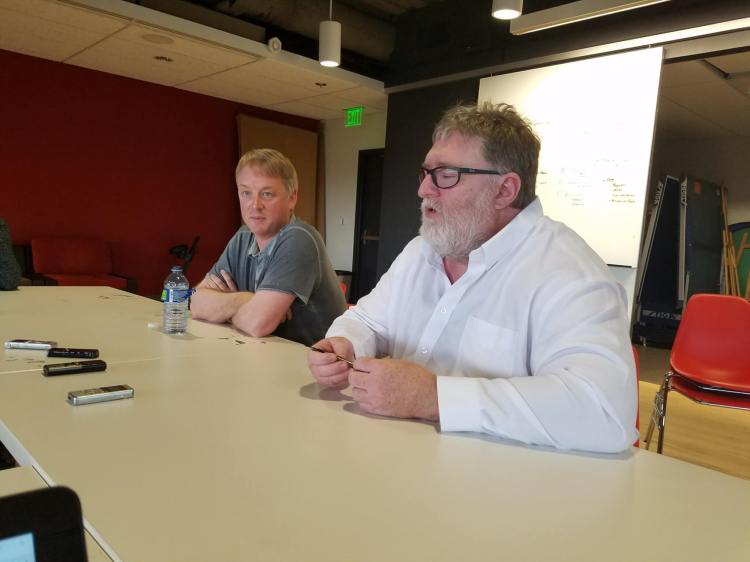While the fate of President Donald Trump’s executive order barring immigration from seven predominantly Muslim countries is still undecided, real companies are dealing with the potential fallout and chilling effect it may have on their business. One of those companies is the publisher responsible for Dota 2
Valve said that it has some concerns for its employees and the future of massive esports tournaments like Dota 2’s The International, which brings players from around the world to compete in a championship grand final in Seattle. During an extended conversation with journalists at its Bellevue headquarters, the gaming company pointed out that any additional difficulties in acquiring visas could force the company to consider moving an event like The International to a nation that is friendly to free movement of people.
“Any pressure on visas for getting into the United States is worrisome for us,” Dota 2 developer Erik Johnson said. “We do a huge amount of work every year when we host The International.”
Johnson pointed out that the company has already had to work with Sen. Maria Cantwell (D-Washington) to help get visas for certain players on three separate occasions, and those instances were under the old rules. Valve founder Gabe Newell explained why it has been troublesome in the past.
June 5th: The AI Audit in NYC
Join us next week in NYC to engage with top executive leaders, delving into strategies for auditing AI models to ensure fairness, optimal performance, and ethical compliance across diverse organizations. Secure your attendance for this exclusive invite-only event.
“This is a case where your average esports competitor does not look like — y’know, if you’re an opera singer, it’s pretty easy to get a visa,” he said. “The State Department kinda understands who these people are. If you’re a Nobel prize winner, they kinda know who you are. When you’re an unemployed [teenager from Syria] without strong ties to this country, it’s more challenging.”
There are a number of active Dota 2 professionals from all over the world including the countries affected by the ban. Digital Chaos solo-mid player Aliwi “w33” Omar is a Muslim from Syria, and Kuro “KuroKy” Salehi Takhasomi plays for Team Liquid and has family ties to Iran. Valve is dedicated to ensuring that these players can compete, and that it confirmed that it could foresee a future where it would potentially have to move the tournament out of the United States to maintain its integrity.
“We’re going to run the event no matter what,” said Johnson. “Ideally, we’d hold it here. There’re a lot of advantages to it being close to our office. But the events going to happen. So yes, if [acquiring visas for players becomes] too difficult, we’d have to find a way.”
How the ban affects Valve
But Valve isn’t just worried about how a ban hurts its esports efforts. Some of the company’s employees are directly affected by the executive order.
“We have people who work at Valve, who can’t go home,” said Newell. “They’ve been here for years. They pay taxes. They cheer for New England in the Super Bowl — and we try not to hold that against them.”
“So that’s when we try to send them home,” Johnson chimed in.
“But they can’t leave the country,” Newell continued. “If there’s some event outside the country, for the first time we’re saying, ‘Oh, wait. They can’t go because they can’t get back.’ So that’s a problem. Not just for hypothetical future employees, but for actual Valve employees. That’s a concern for us.”


